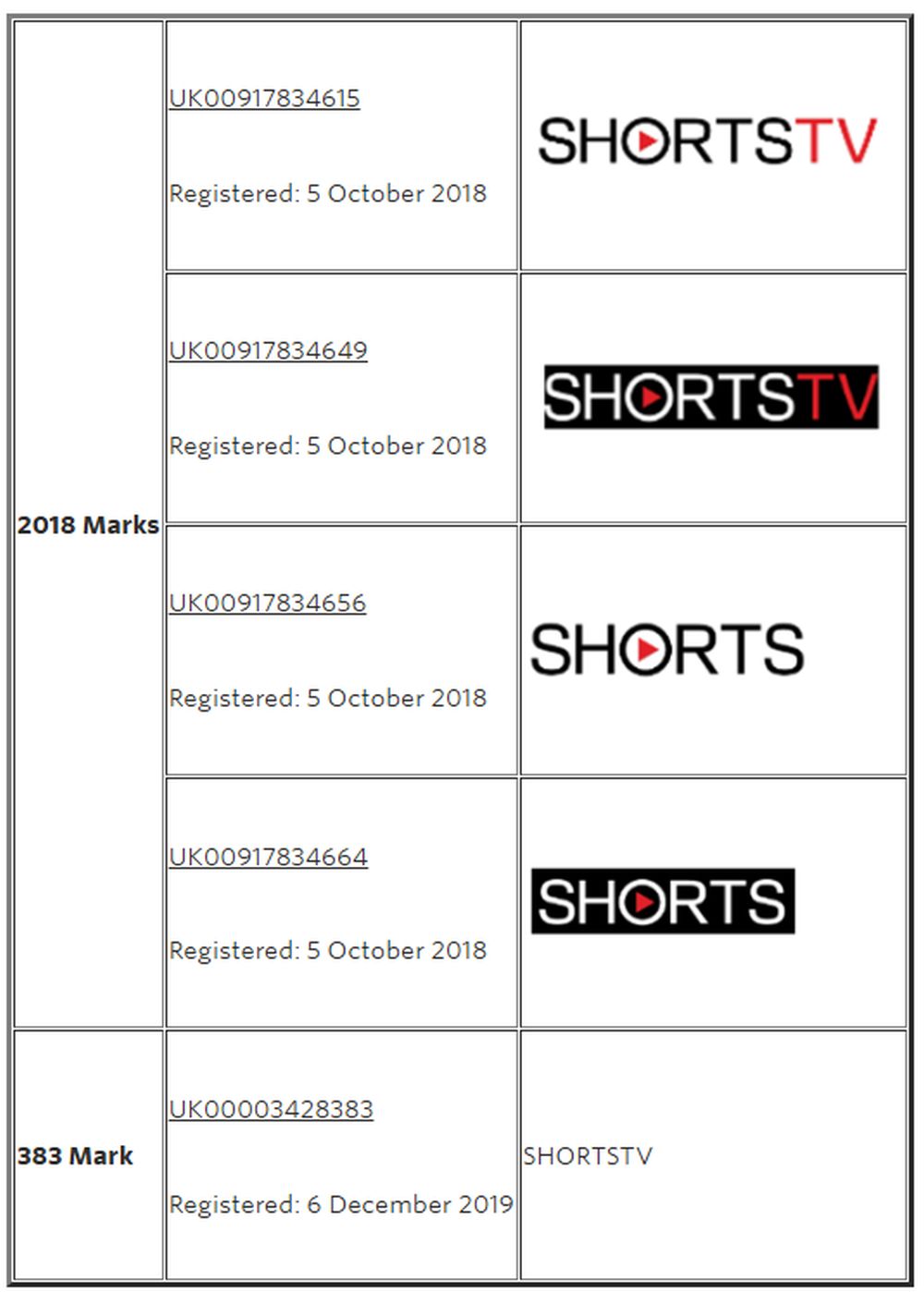- with readers working within the Construction & Engineering industries
On 31 October 2024, the High Court of England of Wales delivered its judgment in Shorts International Limited v Google LLC [2024] EWHC 2738 (Ch).
Google successfully defended claims of trade mark infringement and passing off in relation to Google's use of the name "YouTube Shorts". Fieldfisher acted for Google in the proceedings.
Background
In June 2022, a UK-based short film distribution company called Shorts International Limited (SIL) sued Google in the UK for trade mark infringement and passing off. SIL claimed that Google's use of "YouTube Shorts" and "Shorts" infringed SIL's registered trade marks depicted below:

SIL also claimed that Google was "passing off" YouTube Shorts as being in some way connected to SIL. Google argued that its uses were not infringing and did not constitute passing off for several reasons, including that the word "shorts" was descriptive of the short-form content that appeared on the YouTube platform.
Google also counterclaimed that SIL's registered trade marks were invalid because: (a) they were descriptive of the goods and services they were registered for (mainly relating to short films); or (b) in the case of the 2018 Marks, SIL had not used the trade marks for certain goods and services.
Trial
The case was issued in the Intellectual Property Enterprise Court in June 2022. Google successfully transferred to the IP List of the High Court in January 2023. The trial was heard in the UK High Court before Deputy Judge Michael Tappin KC between 2 and 11 October 2024. SIL relied on evidence from nine witnesses and Google relied on evidence from eight witnesses (including a trade witness from Channel 4 and two Fieldfisher solicitors). The judgment was handed down less than three weeks later.
Judgment
Google successfully defended all claims and partially succeeded in its counterclaims.
Validity
Google challenged the validity of SIL's trade marks under s.3(1) of the Trade Marks Act 1994 (TMA), namely:
- They are devoid of any distinctive character (s.3(1)(b) TMA);
- They consist exclusively of signs or indications which may serve, in trade, to designate the kind...or other characteristics of goods or services (s.3(1)(c) TMA); and
- They consist exclusively of signs or indications which have become customary in the current language or in the bona fide and established practices of the trade (s.3(1)(d) TMA).
When ruling on validity, the judge considered the meaning of the word "shorts". After reviewing the extensive evidence, the judge ruled that "shorts" does not just mean "short films" (as argued by SIL). Instead, it was found that one meaning of the word "shorts" was short-form audiovisual content, including but not limited to "short films". Further, the word "shorts" would be recognised by the average consumer as a description of a characteristic of SIL's registered goods and services, at least in some cases.
2018 Marks
In respect of the 2018 Marks, the judge found that the "play symbol" inside the "O" would be recognised by the average consumer as designating a characteristic of the goods, specifically that certain goods can be "played".
However, he considered the two descriptive elements together (i.e. both the word "shorts" and the "play symbol" inside the "O") and held that their combination meant that the mark does not consist exclusively of indications which designate characteristics of the goods (the term "exclusively" being the language used in s.3(1)(c)TMA). Accordingly, the 2018 Marks were not invalid under ss.3(1)(b), (c) and (d) TMA.
In terms of non-use, the judge found that SIL's registrations for "computer software" and "electronic entertainment software" in class 9 and "entertainment services" in class 41 were too broad. The specifications for the 2018 Marks were therefore narrowed to reflect the extent of SIL's actual use in the preceding five years.
383 Mark
The judge found that the 383 Mark was invalid under ss.3(1)(b), (c) and (d) TMA for the majority of goods and services. In relation to s.3(1)(c) TMA, the judge found that both elements of "SHORTSTV" were descriptive and the combination of elements did not create a "perceptible difference between the word and the mere sum of its parts".
The judge rejected SIL's claim that the 383 Mark had acquired distinctiveness through use. SIL's evidence of use was not sufficient to meet the threshold for acquired distinctiveness pursuant to the principles outlined by Arnold J in W3 Ltd v easyGroup Ltd[2018] EWHC 7 (Ch).
Trade mark infringement and passing off
After ruling on validity, the judge considered whether Google infringed the 2018 Marks under ss.10(2) and (3) TMA. In relation to claims of infringement under s.10(2), the low distinctive character of the 2018 Marks and the absence of the distinctive element of the 2018 Marks (being the combination of the word "shorts" and the "play symbol" appearing in the "O") in Google's uses, meant there was no likelihood of confusion. The fame of YouTube was key in that finding: "YouTube is a very well known and long established brand. In my view there is no possibility of substantial numbers of members of the public being misled into believing that YouTube Shorts is a service of SIL."
In relation to claims of infringement under s.10(3), the judge found that SIL's trade marks did not have a reputation in the UK and even if they did, Google's uses of "YouTube Shorts" would not damage that reputation. Indeed, the judge commented that SIL itself used YouTube Shorts as an "excellent marketing tool". Similarly, there was no convincing evidence of dilution.
For similar reasons, the judge also held that Google had not engaged in passing off.
The content of this article is intended to provide a general guide to the subject matter. Specialist advice should be sought about your specific circumstances.



